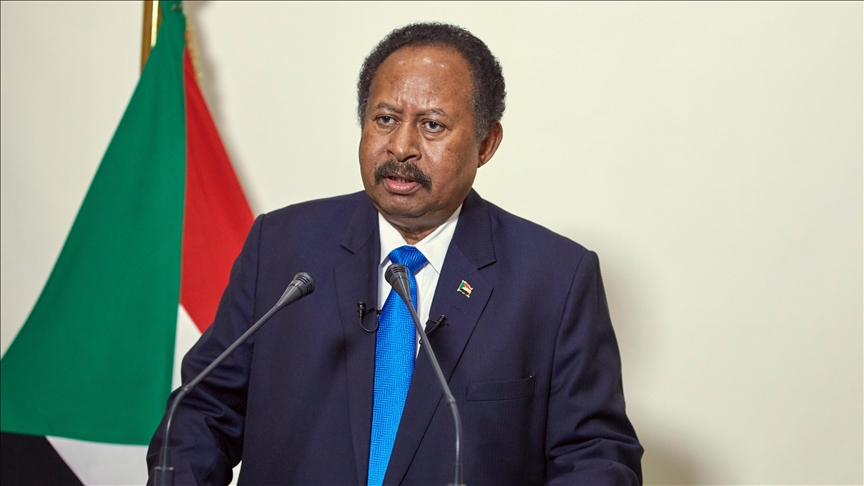Two sources close to Sudanese Prime Minister Abdullah Hamdok told Reuters this evening, Tuesday, that Hamdok told a group of national figures and intellectuals who met with him that he intends to submit his resignation from his position.
The two sources added that the group called on Hamdok to reverse his decision, but confirmed his insistence on taking this step in the coming hours.
On November 21, the head of the Sovereign Council, Abdel Fattah Al-Burhan, and Prime Minister Abdullah Hamdok signed a political agreement that includes the latter's return to his position, the formation of a government of competencies (without party affiliations), the release of political detainees, and the two parties pledged to work together to complete the democratic path.
Although Hamdok was returned to his position without his government, this agreement was met by the opposition's rejection of the measures taken by the armed forces in the past period.
Yesterday, the Transitional Sovereignty Council in Sudan called for accelerating the formation of the transitional government in the country.
The Sovereignty Council held a meeting on Monday, headed by Al-Burhan, who is also the commander of the army, at the presidential palace in the capital, Khartoum, according to a statement of the council.
The council's spokeswoman, Salma Abdul-Jabbar al-Mubarak, said - in the statement - that the council stressed the need to expedite the formation of the transitional government, until a civil state is reached and a democratic transition is achieved.
She added that the council stressed during the meeting the freedom of peaceful expression.
Since last October 25, Sudan has witnessed protests in rejection of measures taken by Al-Burhan on the same day, which included declaring a state of emergency, dissolving the Sovereignty Councils and Transitional Ministers, and dismissing Prime Minister Abdullah Hamdok, after the arrest of party leaders and officials, as part of measures described by political forces as a military coup.
Countries and regional and international organizations welcomed the Burhan and Hamdok agreement to address the crisis, but Sudanese political and civil forces consider it an attempt to legitimize what they describe as the coup, and they continue to protest demanding full civilian rule.

